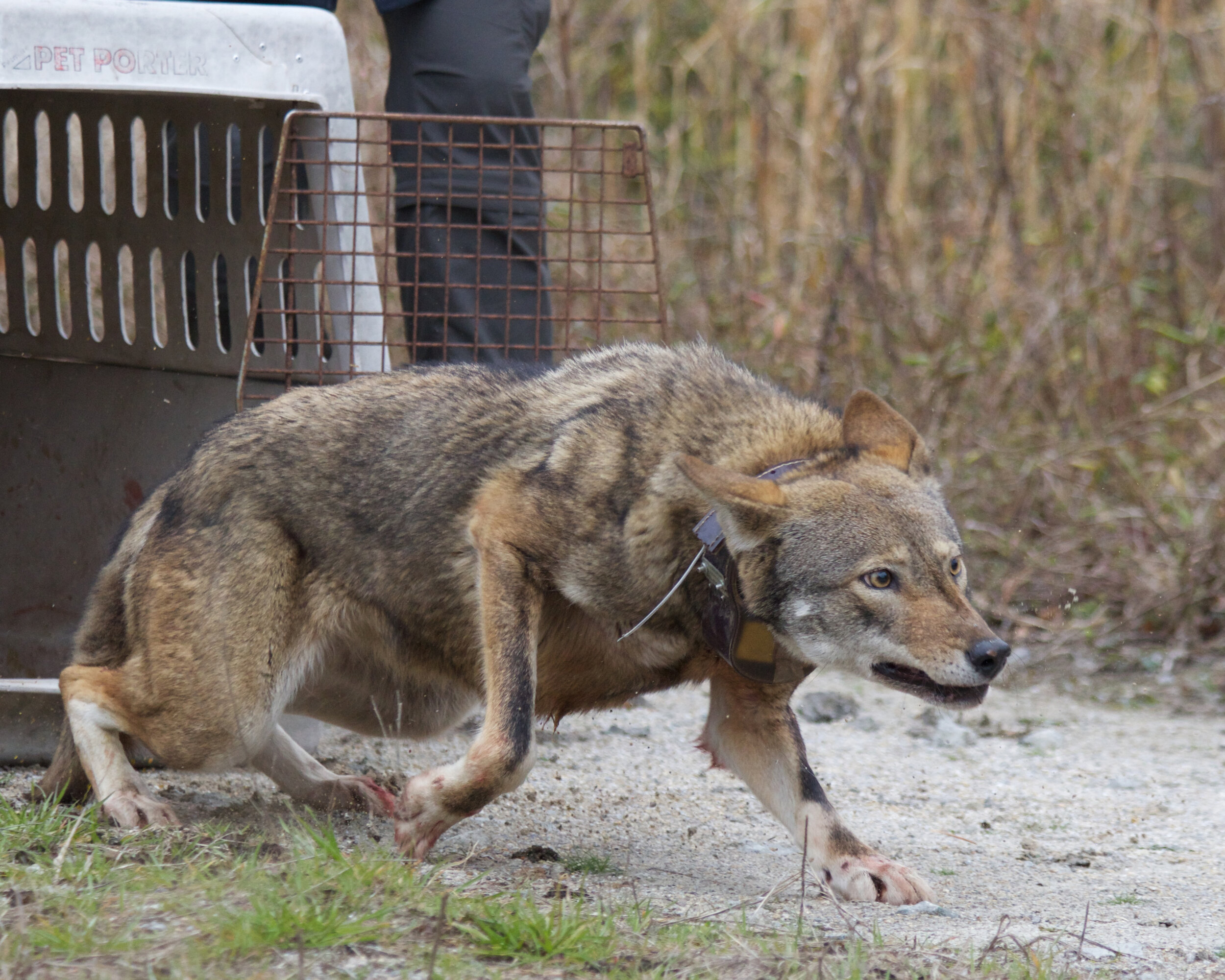Red Wolf Project : Introduction to The Red Wolf
Red Wolves at Museum of Life and Science © Robert Wilcox
Disclaimer: The views and conclusions contained in this website and in all documents or media contained herein are those of the authors and should not be interpreted as representing the opinions or policies of the U.S. Government. Mention of trade names or commercial products does not constitute their endorsement by the U.S. Government.
The Backstory
The American Red Wolf is the world’s most critically endangered canid. Once common throughout the eastern United States, the population was decimated by the early 20th century as a result of intensive predator control and the destruction of habitat and forested barriers. These land alterations allowed western coyotes to eventually move east across Texas, where they mated with the dwindling population of remaining wolves in the surrounding eastern states. During the first half of the 20th century these hybrids began to supplant the Red Wolf throughout its original range.
In the late 1970s there were only pockets of wolves left, mainly in southwest Louisiana and southeast Texas. During that decade agents captured 400+ total canids throughout Louisiana and Texas, with only 17 being deemed “pure” Red Wolves based on morphology. The remaining canids (coyotes and hybrids) were destroyed. Only 14 of the 17, now known as ‘the founders’, were placed in a captive breeding program. Their offspring were released onto federal land in North Carolina between 1987 - 1994. By 2012 the population was doing extremely well and reached 100–120 individuals. However due to political and taxonomic controversy, as well as human-driven persecution and intolerance, the population declined dramatically following 2012 and was down to 40 individuals in 2018.
Only seven collared Red Wolf individuals were known to remain in the wilds of North Carolina as of October 2020. Since this time the USFWS has released new Red Wolf stock into North Carolina. See these updates HERE.
Release of 11470F - Public Domain © USFWS/B. Bartel
Red Wolf Pups - Public Domain © USFWS/Ford Mauney
Red Wolf Prior To Release - Public Domain © USFWS/Ryan Nordsven
“The wolf is neither man's competitor nor his enemy. He is a fellow creature with whom the earth must be shared.”
— L David Mech
More info on the red wolf coming soon. In the meantime check out more resources below.
“In shape the Red Texan Wolf resembles the common gray variety. It is more slender and lighter than the white Wolf of the North West, and has a more cunning fox-like appearance”.
The Quadrupeds of North America, 1851
What can we learn from stories like that of the Red Wolf?
What questions should we be asking while discussing predators, ecosystems, and the Endangered Species Act in contemporary times?
A growing list of reading material will be updated alongside the progression of the project.
These include:
Academic papers and studies
News articles
Reports








